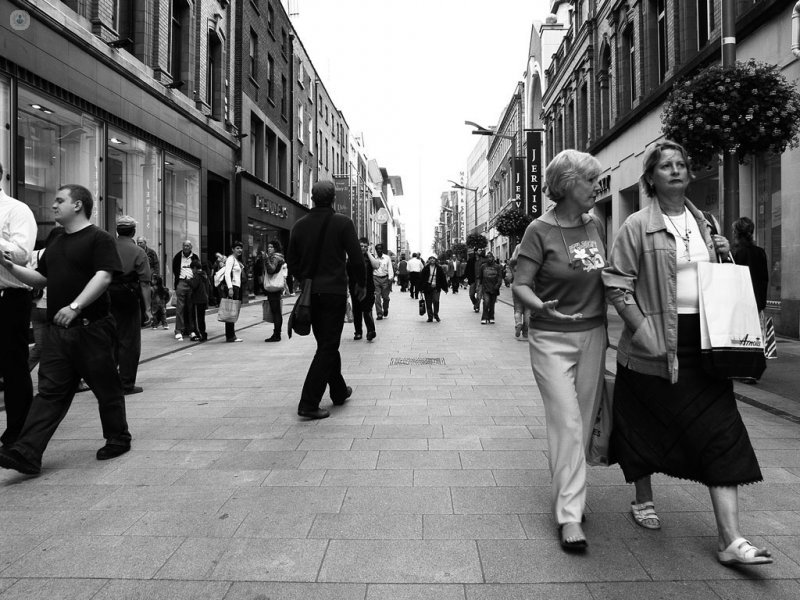Agoraphobia affects more women than men
Written by:Agoraphobia is the fear of being anywhere, either open or closed, in which you can have a strong reaction of discomfort or anxiety. It affects, like most anxiety disorders, more women than men. This is largely due to the hormonal factor.
 Many people believe that agoraphobia is only the fear of open spaces, but it is much more than that. For example, agoraphobia may be caused by being away from home or traveling on any type of transport.
Many people believe that agoraphobia is only the fear of open spaces, but it is much more than that. For example, agoraphobia may be caused by being away from home or traveling on any type of transport.
Agoraphobia is a highly incapacitating mental disorder that usually leads to sick leave as well as difficulties to carry out a normal life at family, social and / or couple level. The person suffering from agoraphobia often feels unable to perform activities as normal and everyday as shopping, driving, traveling by public transport and going to shopping centers or concerts.
As mentioned earlier, agoraphobia affects women more than men. In addition, it is more frequent in people with a high anxiety trait (they perceive situations as more threatening than people with low levels of anxiety), perfectionists (they demand much more to themselves and are usually very controlling), with high levels of stress (a factor that triggers many mental disorders) and with a history of substance use (especially tobacco and cannabis).
Causes of agoraphobia
Agoraphobia can develop after suffering several panic attacks or, also, it can appear without panic attacks.
Some people who suffer from agoraphobia are often worried if something dangerous happens to their health, due to anxiety and that no one can help them. For example, the fact of suffering a heart attack in the subway or a faint in the middle of the street. Other people also worry if, due to their anxiety, they lose control and others realize and think something negative about them, which in turn generates more anxiety. For example, sweating, turning red or needing to go to the bathroom. This type of reaction in people can become so strong that it can trigger a panic attack.
In addition to the typical symptoms of a panic attack (such as dizziness, sweating, increased heart rate or fear of going crazy or dying) agoraphobia can present other physical symptoms such as:
- Tunnel vision or sensitivity to light
- Muscle spasms
- Urinary retention problems
- Weakness or fatigue
- Diarrhea
- Vertigos
Agoraphobia: treatment
To treat agoraphobia, it is not necessary to receive pharmacological treatment, as long as the person has no suicidal intention. It is usually sufficient if it is treated by an evidence-based psychological technique, such as cognitive behavioral treatment.
After 10 or 12 sessions of cognitive behavioral treatment of approximately one hour, the patient is usually cured. The results are maintained in the long term without the need for medication.



